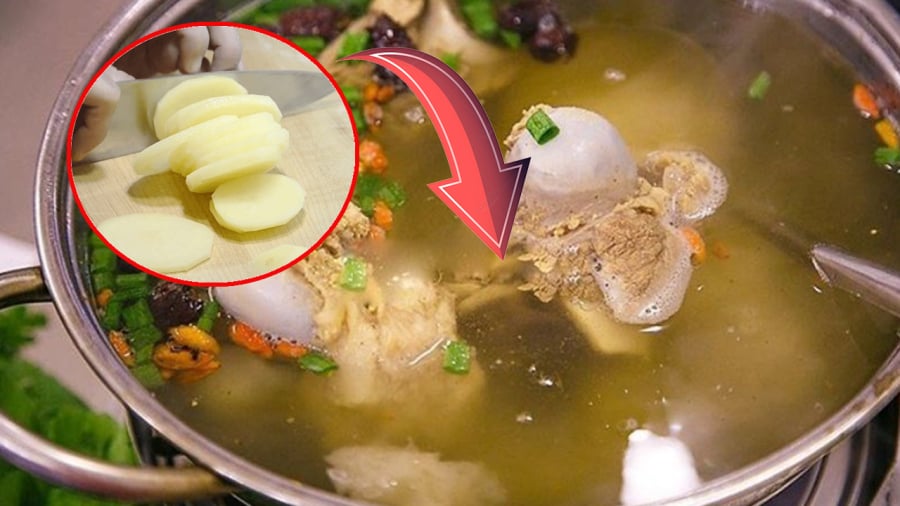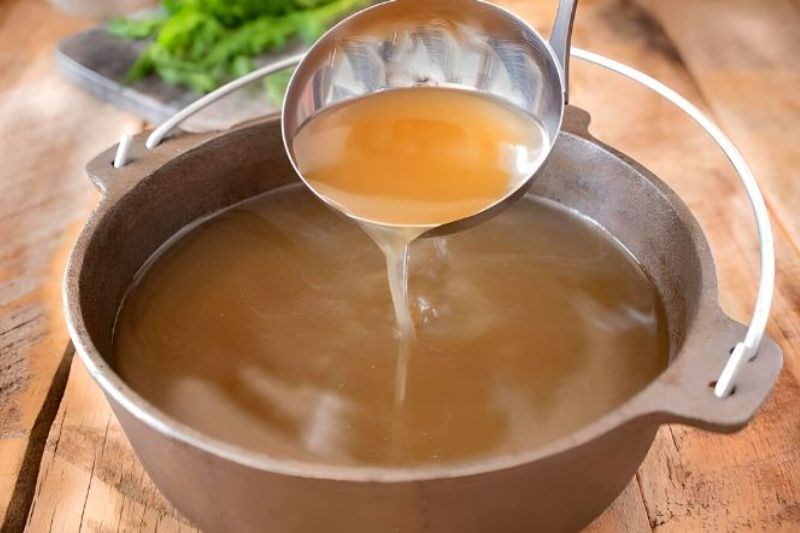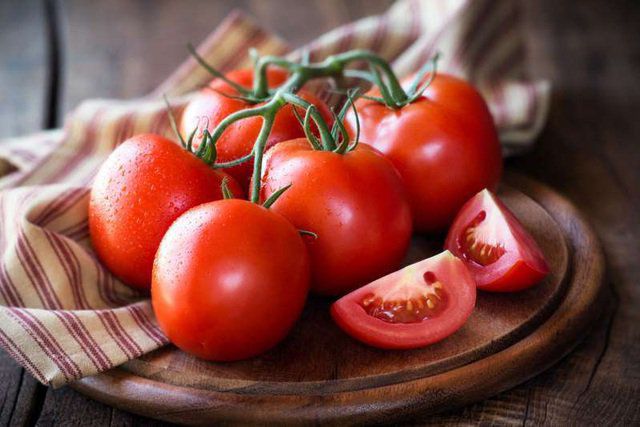Cooking at home is something every family needs to do every day. Small but powerful tips can make cooking much simpler and easier.
For example, when making soup and accidentally adding too much salt, there’s a very simple and effective way to fix it. Take a potato, slice it about 0.5cm thick, and add it to the pot of soup. Potatoes have the ability to absorb salt, so your soup will quickly become less salty.

In addition to potatoes, you can also use the following tips to reduce saltiness:
Using Egg Whites
Egg whites are one of the effective ingredients to reduce saltiness in soup. It’s very easy to do. Just add a raw egg white to the soup pot and bring it to a boil. The egg white will help absorb the excess salt, making the soup less salty. If you don’t want the egg in the soup, you can remove the egg white using salt and fish them out.
If you’re making a bone broth or mixed soup, you can use salt to scoop out the unwanted bits and then add the egg white. Boil it for 15 minutes. After that, remove all the floating eggs on the surface of the soup and then put the bits back in and cook until ready to eat. This method will help reduce the saltiness and remove the fishy taste of the egg white.
Add Rice
This may sound strange but it’s very useful for fixing overly salty soup. Put some rice in a clean cloth, tie it tightly, and then add it to the soup pot. The rice will help absorb the excess salt in the soup.

Add Sugar
If your soup is too salty, you can add a little sugar. However, be careful not to add too much as it can change the flavor of the dish and make it less appealing. Sugar will help reduce the saltiness of the soup.
Use Vinegar/Lemon
If your soup is too salty, you can squeeze some lemon or add a few drops of vinegar. Even a small amount of rice vinegar or lemon juice can neutralize the saltiness of the soup. Avoid adding too much vinegar or lemon at once as it can affect the taste of the soup.
Plain Yogurt
For dishes that contain cheese or cream, you can use plain yogurt (unsweetened) instead of water to reduce the saltiness. Gradually add the yogurt to the food to adjust the taste.
Tomatoes

Tomatoes can also help reduce the saltiness of a dish. Cut the tomatoes into thick slices and add them to the food for about 15-20 minutes. This will allow the tomatoes to balance the taste and aroma of the food, making it less salty.
Tofu
If you have tofu at home, add a few small pieces to the dish. Tofu has a high absorption rate and can absorb salt, making the dish less salty. This method is suitable for soups.





































